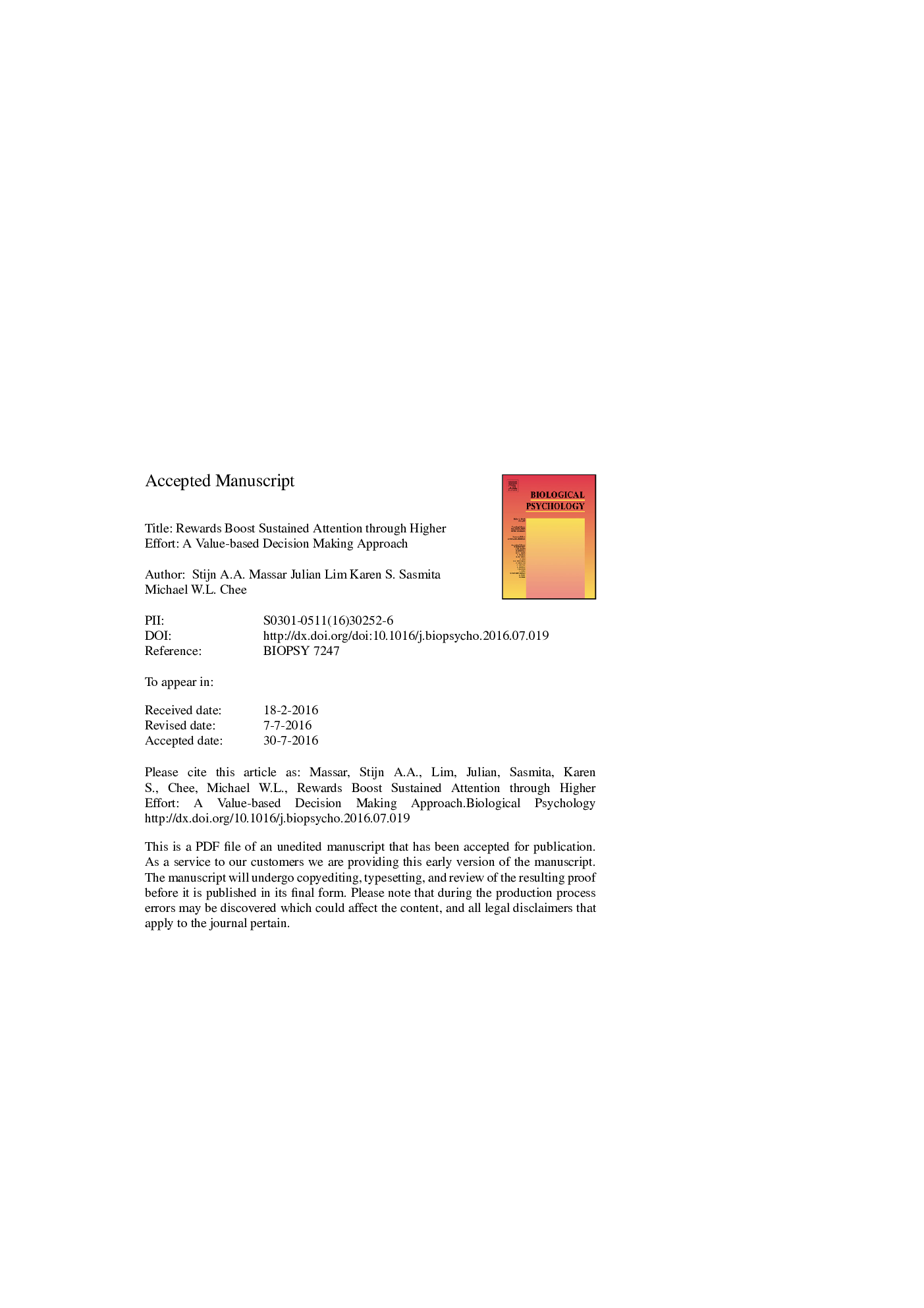| Article ID | Journal | Published Year | Pages | File Type |
|---|---|---|---|---|
| 7278341 | Biological Psychology | 2016 | 30 Pages |
Abstract
Maintaining sustained attention over time is an effortful process limited by finite cognitive resources. Recent theories describe the role of motivation in the allocation of such resources as a decision process: the costs of effortful performance are weighed against its gains. We examined this hypothesis by combining methods from attention research and decision neuroscience. Participants first performed a sustained attention task at different levels of reward. They then performed a reward-discounting task, measuring the subjective costs of performance. Results demonstrated that higher rewards led to improved performance (Exp 1-3), and enhanced attentional effort (i.e. pupil diameter; Exp 2 & 3). Moreover, discounting curves constructed from the choice task indicated that subjects devalued rewards that came at the cost of staying vigilant for a longer duration (Exp 1 & 2). Motivation can thus boost sustained attention through increased effort, while sustained performance is regarded as a cost against which rewards are discounted.
Related Topics
Life Sciences
Neuroscience
Behavioral Neuroscience
Authors
Stijn A.A. Massar, Julian Lim, Karen Sasmita, Michael W.L. Chee,
